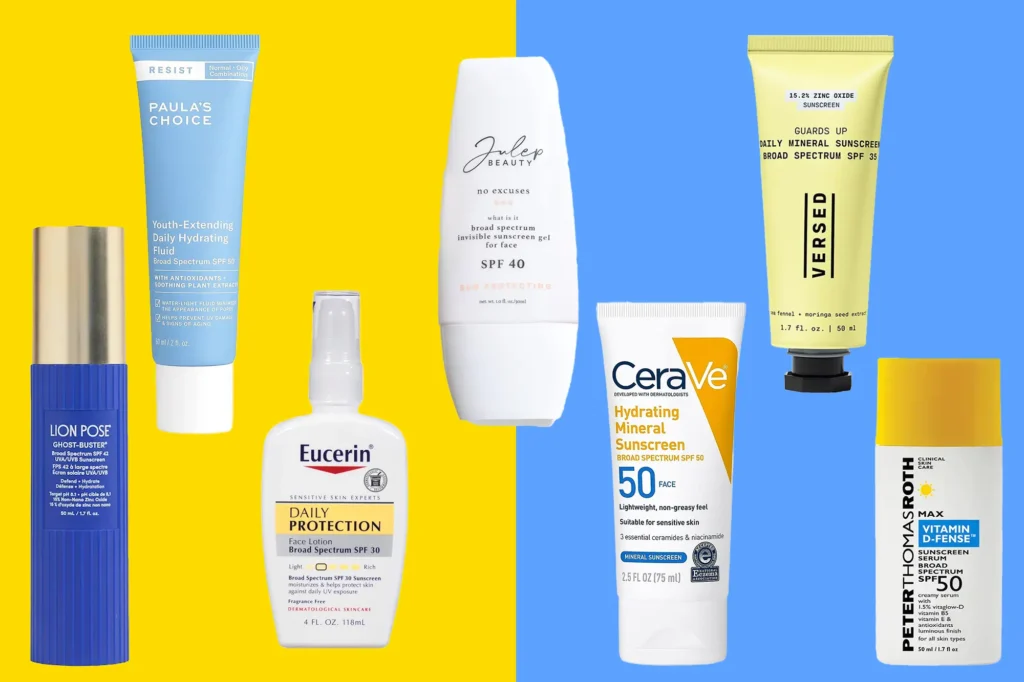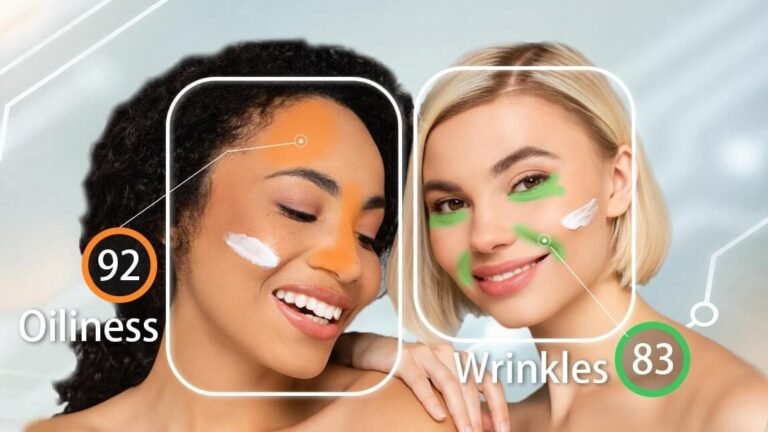The Ultimate Guide to Choosing the Best Sunscreen for Sensitive Skin
Sunscreen is a crucial part of any skincare routine, but for those with sensitive skin, finding the right one can be a challenge. Sensitive skin requires extra care and attention, and using the wrong sunscreen can lead to irritation, redness, and other unpleasant reactions. In this article, we will explore the best sunscreen options for sensitive skin, including their features, benefits, and how to choose the right one for your needs.
When it comes to sunscreen for sensitive skin, choosing the right product with gentle yet effective ingredients is crucial. Sensitive skin is prone to irritation and allergic reactions, so it’s essential to opt for sunscreens formulated with ingredients that are less likely to cause adverse reactions. Here are key ingredients to look for in sunscreen for sensitive skin:

- Zinc Oxide:
- Zinc oxide is a physical sunscreen ingredient that provides broad-spectrum protection against both UVA and UVB rays.
- It sits on the surface of the skin and forms a protective barrier, reflecting and scattering UV radiation away from the skin.
- Zinc oxide is gentle and less likely to irritate, making it suitable for sensitive skin types.
- Look for sunscreens with micronized or nano-sized zinc oxide particles for a lightweight, non-greasy finish.
- Titanium Dioxide:
- Like zinc oxide, titanium dioxide is a physical sunscreen ingredient that offers broad-spectrum UV protection.
- It works by reflecting and scattering UV rays, preventing them from penetrating the skin.
- Titanium dioxide is gentle and well-tolerated by sensitive skin, making it a suitable choice for those prone to irritation or allergies.
- Sunscreens containing a combination of titanium dioxide and zinc oxide provide enhanced sun protection for sensitive skin.
- Mineral Sunscreen Formulations:
- Mineral sunscreens, also known as physical or inorganic sunscreens, rely on mineral-based ingredients like zinc oxide and titanium dioxide to provide sun protection.
- These formulations are free of chemical UV filters, which can be harsh and irritating to sensitive skin.
- Mineral sunscreens are often hypoallergenic and less likely to cause stinging, burning, or redness, making them ideal for sensitive skin types.
- Fragrance-Free and Hypoallergenic Formulas:
- Fragrances are a common trigger for skin sensitivity and allergic reactions. Opting for fragrance-free sunscreens reduces the risk of irritation.
- Look for products labeled as hypoallergenic, indicating that they are formulated to minimize the risk of allergic reactions.
- Avoid sunscreens containing added fragrances, essential oils, or botanical extracts, especially if you have sensitive skin prone to irritation.
- Non-Comedogenic Formulations:
- Sensitive skin can be prone to acne and clogged pores. Choose sunscreens labeled as non-comedogenic, meaning they won’t clog pores or exacerbate acne.
- Non-comedogenic sunscreens are formulated to be lightweight and oil-free, making them suitable for sensitive, acne-prone skin.
- Moisturizing Ingredients:
- Sensitive skin often tends to be dry and prone to irritation. Look for sunscreens enriched with moisturizing ingredients such as hyaluronic acid, glycerin, or ceramides.
- These ingredients help hydrate and nourish the skin, preventing dryness and soothing irritation caused by sun exposure.
- Broad-Spectrum Protection:
- Opt for sunscreens labeled as broad-spectrum, indicating they protect against both UVA and UVB rays.
- UVA rays can penetrate deep into the skin, causing premature aging and increasing the risk of skin cancer, while UVB rays primarily cause sunburn.
- Broad-spectrum sunscreens offer comprehensive protection against both types of UV radiation, ensuring your skin stays safe and healthy.
When selecting a sunscreen for sensitive skin, it’s essential to consider not only the active ingredients but also the overall formulation and compatibility with your skin type. Conduct patch tests before applying a new sunscreen to your face or body, and consult with a dermatologist if you have specific concerns or sensitivities. With the right sunscreen, you can enjoy sun protection without compromising the health or comfort of your sensitive skin.
Understanding Sensitive Skin
Sensitive skin is a common skin type that can be prone to irritation, redness, and other adverse reactions. It can be caused by various factors, including genetics, environmental factors, and skin conditions like rosacea or eczema. When choosing a sunscreen for sensitive skin, it’s essential to look for products that are specifically designed to be gentle and non-irritating.
Key Ingredients to Look for in Sunscreen for Sensitive Skin
When selecting a sunscreen for sensitive skin, it’s crucial to look for ingredients that are gentle and non-irritating. Here are some key ingredients to look for:
- Zinc Oxide and Titanium Dioxide
These physical sunscreen ingredients are gentle and non-irritating, making them ideal for sensitive skin. They work by sitting on top of the skin and reflecting UV rays away from the skin, rather than being absorbed into the skin.
- Hyaluronic Acid
Hyaluronic acid is a powerful moisturizer that can help soothe and hydrate sensitive skin. It’s also non-irritating, making it a great addition to sunscreen for sensitive skin.
- Niacinamide
Niacinamide is a form of vitamin B3 that can help soothe and calm sensitive skin. It’s also non-irritating and can help improve the skin’s barrier function, making it less prone to irritation.
- Green Tea Extract
Green tea extract is a powerful antioxidant that can help protect the skin from damage caused by free radicals. It’s also non-irritating and can help soothe and calm sensitive skin.

Top Sunscreens for Sensitive Skin
Here are some of the top sunscreens for sensitive skin, based on their features, benefits, and customer reviews:
- EltaMD UV Clear Broad-Spectrum SPF 46
This sunscreen is specifically designed for sensitive skin and is formulated with zinc oxide and titanium dioxide. It’s also non-comedogenic, oil-free, and fragrance-free, making it ideal for acne-prone and sensitive skin.
- Neutrogena SheerZinc Dry-Touch Sunscreen SPF 50
This sunscreen is lightweight, non-greasy, and formulated with 100% zinc oxide. It’s also water-resistant, making it a great option for outdoor activities.
- La Roche-Posay Anthelios Ultra-Light Sunscreen Fluid SPF 60
This sunscreen is lightweight, non-greasy, and formulated with zinc oxide and titanium dioxide. It’s also fragrance-free and suitable for sensitive skin.
- CeraVe Hydrating Sunscreen SPF 30
This sunscreen is formulated with zinc oxide, hyaluronic acid, and niacinamide. It’s also non-comedogenic, oil-free, and fragrance-free, making it a great option for acne-prone and sensitive skin.
- Coola Mineral Body Organic Sunscreen Lotion SPF 30
This sunscreen is formulated with zinc oxide and titanium dioxide, as well as hyaluronic acid and green tea extract. It’s also water-resistant and suitable for sensitive skin.

How to Choose the Right Sunscreen for Sensitive Skin
Choosing the right sunscreen for sensitive skin involves considering several factors, including:
- Sun Protection Factor (SPF)
Choose a sunscreen with an SPF of 30 or higher. The SPF measures the sunscreen’s ability to protect against UVB rays, which can cause sunburn and skin damage.
- Broad-Spectrum Protection
Choose a sunscreen that provides broad-spectrum protection, which means it protects against both UVA and UVB rays. UVA rays can cause skin aging, while UVB rays can cause sunburn and skin damage.
- Physical vs. Chemical Sunscreen
Consider whether you prefer a physical or chemical sunscreen. Physical sunscreens, such as zinc oxide and titanium dioxide, sit on top of the skin and reflect UV rays away from the skin. Chemical sunscreens, on the other hand, are absorbed into the skin and work by neutralizing UV rays.
- Ingredients
Look for sunscreens that contain gentle and non-irritating ingredients, such as zinc oxide, titanium dioxide, hyaluronic acid, niacinamide, and green tea extract.
Conclusion
Finding the right sunscreen for sensitive skin can be a challenge, but it’s essential for protecting your skin from the sun’s harmful rays. When choosing a sunscreen for sensitive skin, look for products that are specifically designed to be gentle and non-irritating, and consider your skin type, sun protection factor, broad-spectrum protection, physical vs. chemical sunscreen, and ingredients. With the right sunscreen, you can enjoy the sun safely and protect your sensitive skin from damage.




